On April 11, 2015, the 2nd (Guangzhou) International Forum on Mini-Invasive Treatment of Pancreatic Cancer was convened in Guangzhou.
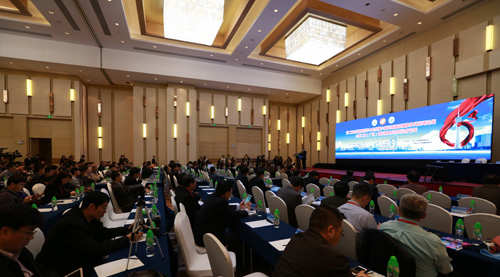
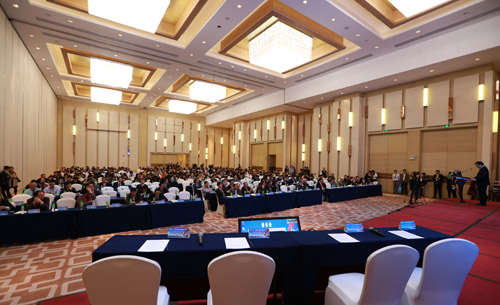
The forum gathered Dr. Vay Liang W (Bill) Go, a distinguished pancreatic disease expert, director of the Pancreatic Disease Center of UCLA and editor-in-chief of U.S. Pancreas; Prof. Xie Keping and Huang shuyun, pancreatic cancer experts from U.S. MD Anderson Cancer Center; Prof. Nikolai N.Korpan, president of Austrian Society of Cryosurgery; Prof. Sajio Sumida, president of Japanese Society of Cryosurgery; Prof. Yang Jinghua from Boston University School of Medicine, U.S.; Prof. Lv Youyong , a senior scientist from the Molecular Oncology Laboratory of Peking University Cancer Hospital; Prof. Li Yinhong from the Public Health Research Department of Guangzhou Institute of Biomedicine and Health, Chinese Academy of Sciences; Yu Xianrui from the department of pancreatic and hepatobiliary surgery of Fudan University Cancer Hospital; and Prof. Masashi Watanabe from Omori Medical Center of Toho University, Japan.
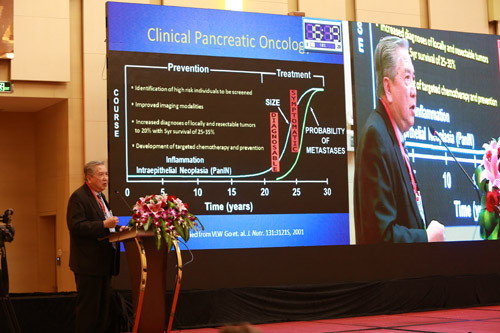
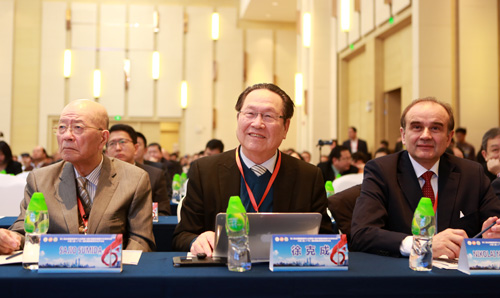
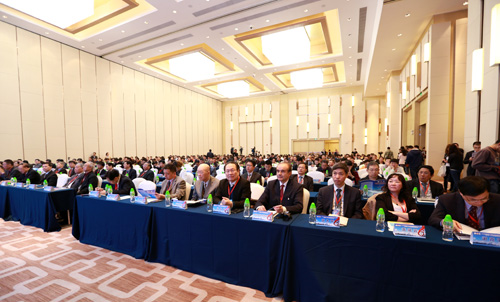
The forum covered three topics, which were the progress of fundamental research in pancreatic cancer, progress of research in pancreatic cancer ablation, and progress of mini-invasive treatment for pancreatic cancer.
The forum pooled the collective wisdom of experts from at home and abroad. Some of the experts delivered special reports, concentrating on hot topics such as the occurrence mechanism, surgical treatment, ablation, targeted therapy, biological immunity, mini-invasive treatment of pancreatic cancer. The experts held in-depth discussions and exchanged ideas with other participants. Among the experts, Doctor Niu Lizhi, vice chairman of Asian Society of Cryosurgery, broadened the outlook of the audience with his speech “Experimental Study of Percutaneous Cryotherapy and Irreversible Electroporation (Nano Knife) for Pancreatic Cancer”.
At a time when pancreatic cancer treatment was dominated by surgical treatment, Dr. Niu Lizhi took the lead in adopting CT-guided percutaneous cryoablation combined with iodine-125 seed implantation and immunotherapy. With the technique, more than 300 pancreatic cancer patients have been successfully treated, and a majority of them was in Stage III or IV. After the treatment, some patients have survived for over 7 years. Mr. Huang, a pancreatic cancer patient from Malaysia, said that he had survived for more than 5 years.
Dr. Niu Lizhi put forward a new technique for pancreatic cancer treatment——irreversible electroporation (nano knife), which has been widely used in many European and American countries. However, in China, the technique is applied only in Hongkong SAR currently. One step ahead of others, Guangzhou-based Fuda Cancer Hospital, where Dr. Niu Lizhi is working, has already entered the stage of experiment and research. According to research findings of the hospital, irreversible electroporation for pancreatic cancer causes no damage to the blood vessel, pancreatic duct, bile duct and nerve in the ablated area. After the procedure, patients have no untoward effect such as pancreatitis, bile leakage, bleeding, or metastasis through needle passage. As a result of the procedure, some patients regain the opportunity of operation and therefore survive for a long time. The technique features both satisfactory level of safety and effectiveness.
As one of the most influential academic event in the field of pancreatic cancer in China and abroad, the annual (Guangzhou) International Forum on Mini-Invasive Treatment of Pancreatic Cancer provides domestic and overseas experts and scholars a great platform to share progress, exchange experiences, and reach consensus. It was believed that the forum would be a satisfying trip for most participants.
Prof. Vay Liang W. (Bill) Go from the U.S. spoke highly of the pancreatic cancer cryotherapy offered by Fuda Cancer Hospital.
On the morning of April 13, Prof. Go met with Xu Kecheng, chief president of Fuda Cancer Hospital, in Vanburgh Hotel. Prof. Nikolai N. Korpan, a well-known pancreatic cancer expert from Austria, joined them.
Prof. Go said: “After my observational study of Fuda Cancer Hospital and personal visit to the hospital, I came to firmly believe that Fuda Cancer Hospital is the first in the world to initiate percutaneous cryoablation for pancreatic cancer treatment, and has reached the world’s highest level in that regard. Surgery is the primary option for pancreatic cancer treatment. However, in most cases, the pancreatic carcinoma is unresectable once it is detected. Percutaneous cryoablation is the optimal treatment for it not only helps reduce the load of tumor, but also effectively controls tumor progression by the mechanism of “cryoimmunity” in some cases. Eventually, long-term survival is ensured for patients.
While talking with Prof. Xu Kecheng, Prof. Go proposed six suggestions about further fundamental and clinical research of pancreatic cancer cryotherapy. “So far, only four papers from your hospital have been published on our magazine. Among them, the paper “Treating Pancreatic Endocrine Tumors with Cryotherapy” is the first of its kind in the world. I will be very glad to publish your future research achievements.” said Prof. Go.
Vay Liang W. (Bill) Go is a senior professor with UCLA and the chief editor of Pancreas, the world’s most authoritative magazine in the field of pancreas. He has studied pancreatic diseases for more than 40 years and is regarded as a world-renowned pancreatic disease expert.
Prof. Korpan is the first expert who proposed to apply cryotherapy to pancreatic cancer treatment. He said: “I agree with Prof. Go. Fuda Cancer Hospital is indeed the world’s top hospital in terms of pancreatic cancer cryotherapy. Although it was me who put forward cryotherapy as a technique for treating pancreatic cancer a decade ago, I simply used it in operation. But Prof. Xu Kecheng and Dr. Niu Lizhi applied percutaneous cryoablation and created miracles. I would like to cooperate with them on research.”